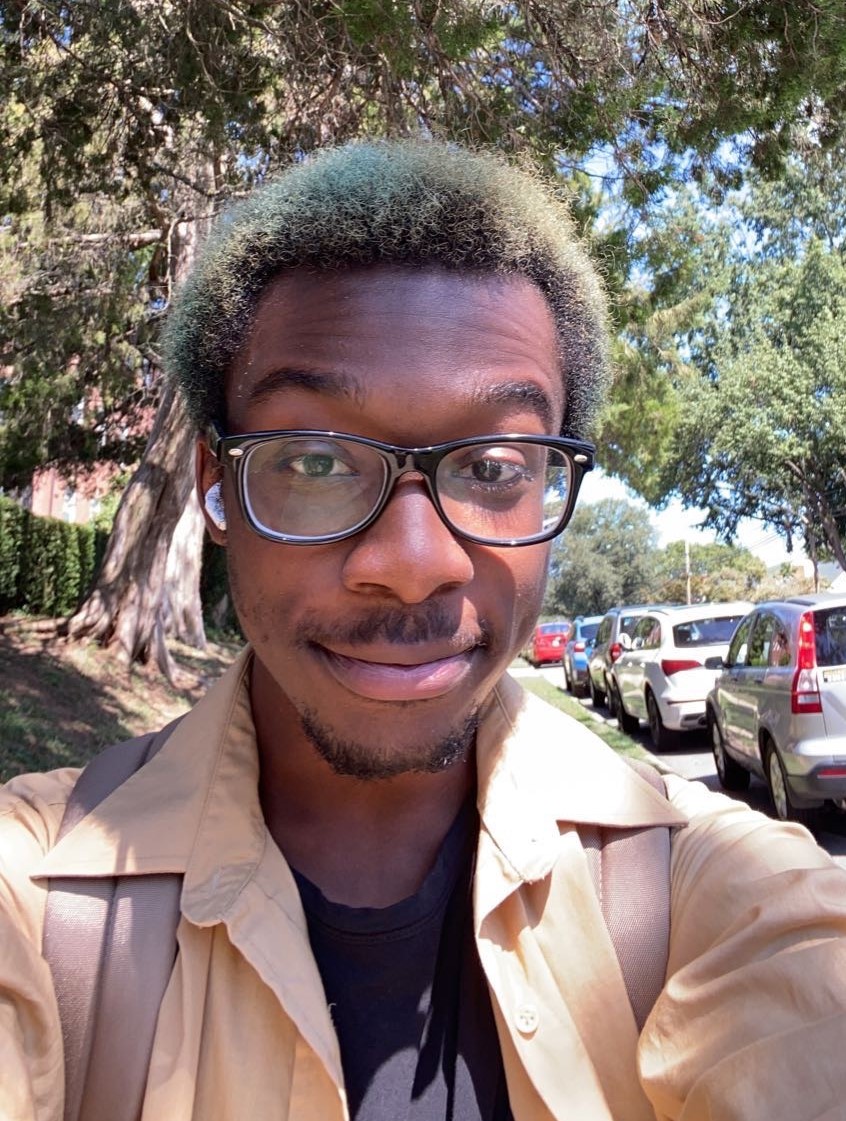Dear Davy: Evaluating the strength of your COVID relationship and expressing yourself to your partner
6 min read
Davy Washington is a senior writer with The Weekly Ringer taking on the unique challenge of writing an advice column. | Davy Washington, The Weekly Ringer
by DAVY WASHINGTON
Senior Writer
Q: My partner and I have helped each other survive this pandemic and are super bonded because of it, but sometimes I can’t tell if we’re holding on to this relationship because we want to be together or because we survived on each other for so long and we can’t imagine not having each other around. How do I tell if I want to be with them or if I’m attached to them because of the trauma of the pandemic?
A: You and your partner should sit down and talk this through. If you think you’re grasping onto a dulling relationship, it might be time to let go or make a plan with your partner to liven things up. Situationships—which may be the case if your relationship grew quickly out of the social isolation during the pandemic—are always tricky, and the pandemic took that to a whole new level, either forcing people into solitude or bringing people together for a long period of time. In my personal experience, the friendships I formed during the pandemic reached a deeper level of closeness a lot quicker than they might have otherwise. With that, I’ll leave you with some questions that you—and, if they’re willing, your partner—should consider.
How much have you trauma-bonded?
Think about your relationship with your partner and recall how it began. In situations where trauma is a key component, the foundation of that relationship might already have a fault that could make it unstable and even unhealthy. Trauma bonding is the formation of connections that are an indirect result of repeated—or in this case elongated—emotional or physical trauma. When a bond is formed because of shared trauma, this can turn into codependency or weakened awareness of relationship issues.
It was common for people to get much closer much faster during the pandemic, which was sometimes the result of a trauma bond, as the isolation we endured had varying impacts on everyone. While it can be helpful to have that shared history during something as distressing as COVID, it can lead to unhealthy relationship characteristics.
Evaluate your emotional dependency on each other
It’s normal—healthy, even—to have someone to rely on who you feel comfortable talking openly with about your life. However, there’s a limit to how much you can share heavy, traumatic thoughts and feelings without it being emotionally taxing on your partner, and it may be better to seek out a therapist for this instead.
The same goes the other way—if you feel like your partner’s personal therapist and it’s weighing on you and your relationship, it’s time to set some boundaries. Kindly tell them that you’re there for them and understand it’s been a hard time for both of you, but you need a break from taking on their emotions in addition to your own. Let them know that this doesn’t mean they have to stop sharing their emotions with you, but they should be cognizant not to overwhelm you—you’re dealing with your own emotions, too.
You can also encourage them to find a therapist. That being said, you can’t control their actions at the end of the day, and how they choose to address their emotional needs is not your responsibility. If you’re truly willing—not out of guilt for putting up a boundary—you may offer to help them find a therapist who’s compatible with their needs, but that’s optional.
Also, how are your relationships with people other than your partner? Though COVID is still present in our everyday lives, it’s died down enough that it’s safe to interact with more than just a small bubble of people. Your partner should not be the only person you ever see, especially if you’ve let relationships with friends and family fade since this relationship began. If you do decide to end the relationship, it’s important to have a support system to lean on during that change.
What is your relationship based on?
Looking at the roots of your relationship can be hard, since it often depends on how long you’ve been together, especially if you were together before the pandemic started. You mention that you don’t know if you’re attached to them because of the pandemic or out of genuine want, but even needing to ask that question sounds like a clear indication that you may not be fully invested in the relationship anymore and may be ready to explore other options.
To find out whether or not your relationship is worth holding onto, step back to look at what your relationship consists of and how it’s evolved based on the state of the pandemic. How much of your relationship was built on the circumstances of the pandemic and the social isolation that came with it? Have you noticed more closeness during worse times of the pandemic? Conversely, as COVID has improved, do you feel that your relationship has deteriorated?
Most importantly, consider how your partner makes you feel. Do they bring you joy when they’re around? Do they lift you up or bring you down? Do you still find them attractive? Do they still meet your needs? Do you find yourself feeling slightly trapped or wondering what else is out there? The way you feel about your partner now is arguably the most important factor in deciding to take a break or move on completely.
The bottom line
Overall, what’s necessary is to talk to your partner. Face the uncomfortable truth with them that it could be time to see other people if there’s no connection between you two—or even if the nature of your relationship has evolved to be something much different than it once was. It’s okay to recognize that it’s no longer fulfilling your needs.
However, if you’ve had a strong relationship from the beginning up to this point and you feel like it’s worth fighting for, you and your partner should strive towards finding a way to calm the doubts that led you to submit this question, together. This may sound daunting, but in practice it can be quite easy, and the results will justify the extra effort that it may take at first—effort that shouldn’t feel like a chore.
In chatting with your partner about your relationship as a whole, try to identify elements of your dynamic that are less than satisfactory for the both of you. Would they appreciate some words of encouragement or affirmation more often, or are they in need of additional quality time? In the same vein, be vocal about why you two like each other—these values are the foundation of your relationship. The things you like about a person don’t have to be affiliated with grandiose adjectives you’d find on the SAT or in the trenches of a thesaurus, but you can communicate them by telling them how sweet it is when they send you pictures of pretty trees or dogs around campus. These little things are what we hold on to, and they are what make the person we’re in a relationship with so special.
Overall, we should all learn to better—and more frequently—express our appreciation and care for each other, and this is especially important for those we’re in a relationship with. Let your partner know that they have a reserved space in your heart, your mind and your life, and trust that you have something good together.











